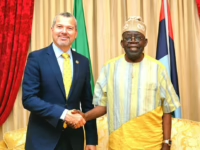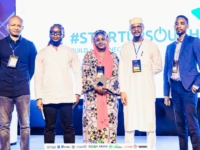For more than three decades, the National Agency for Science and Engineering Infrastructure (NASENI) has positioned technology as a pivotal driver of Nigeria’s national development. In particular, the agency has taken a leading role in addressing the country’s pressing energy challenges by pioneering innovative solar technologies that enhance access to clean, cost-effective power, thereby fostering growth across economic, agricultural, and industrial sectors.
Under the leadership of Khalil Suleiman Halilu, NASENI remains deeply committed to initiatives that combat poverty and bolster national security. As Nigeria’s premier federal technology development institution, NASENI operates under the direct oversight of the sitting President, underscoring its strategic importance in the country’s technological advancement.
Amid Nigeria’s ongoing struggle to secure a stable and reliable electricity supply-a fundamental prerequisite for true industrialization-NASENI continues to introduce cutting-edge solutions aimed at overcoming these energy deficits. The agency’s management consistently treats energy access as an urgent national priority essential for industrial progress.
Through its Alternative Power Solutions for Industrial Development Programme (APSIDP), NASENI has been instrumental in mitigating Nigeria’s energy shortfall by advancing the development and deployment of diverse solar energy technologies. By emphasizing indigenous manufacturing and innovative applications, NASENI not only delivers sustainable and affordable energy alternatives but also supports broader objectives such as food security and economic expansion.
As of March 4, 2025, Nigeria’s maximum electricity generation capacity stood at approximately 5,801.84 megawatts, a figure starkly insufficient compared to the estimated 40,000 megawatts required to adequately meet both residential and industrial demands nationwide.
NASENI’s unwavering dedication to research, development, and commercialization has yielded SMART power-generation innovations that are already reshaping the energy landscape. These breakthroughs result from decades of collaboration among NASENI’s 12 divisions across Nigeria and partnerships with private sector entities.
Since 2011, NASENI has operated NASENI Solar Energy Limited (NSEL) in Karshi, Abuja, manufacturing a variety of high-quality solar photovoltaic (PV) panels. Beyond PV modules, NSEL’s product portfolio includes the NASENI 1KVA Hybrid Solar Generator, the BOSGEN series of energy solutions, the NASENI E-Tricycle for both passenger and cargo transport, energy-saving 5W LED bulbs, efficient solar irrigation pumps, and the robust IP66-rated 200W solar light.
NSEL holds the distinction of being West Africa’s first manufacturer of solar PV modules. The facility has undergone significant upgrades, now boasting a 50-megawatt production capacity with plans to double to 100 megawatts. Equipped with advanced machinery, skilled personnel, and technical expertise, NSEL produces high-performance mono-crystalline solar panels that outperform many imported alternatives.
Looking forward, Nigeria’s sustainable economic development is closely linked to the availability of energy sources that are not only affordable and accessible but also environmentally responsible. Solar energy, with NASENI at the forefront, is a critical component of this diversified energy future.
NASENI’s solar products are certified by the Standards Organization of Nigeria (SON) and hold the Mandatory Conformity Assessment Programme (MANCAP) certification. The solar panel range includes models from 80W up to 690W, with the capability to customize modules to meet specific client requirements.
Additional offerings from NSEL include Plug and Play Solar Home Systems featuring a 1.5KVA hybrid power output designed to supply clean electricity to households, and a Hybrid Solar Power Trainer that simulates grid-connected solar PV systems for educational purposes.
Other innovations include a Solar-Powered Event Generator tailored to provide stable electricity for social gatherings such as weddings and naming ceremonies, and the NSEL Solar Control System, which powers small appliances like lighting fixtures, mobile phones, and laptops.
Beyond manufacturing, NSEL provides comprehensive services including load auditing, system design and sizing, PV module installation and maintenance, as well as renewable energy consultancy and research. Their highly trained workforce has successfully implemented projects across all geopolitical zones of Nigeria.
The NASENI 1KVA Hybrid Solar Generator is notable for delivering reliable power to homes and businesses during outages. Equipped with dual 250W solar panels and a 100AH battery, it incorporates advanced protections against overload, overcharging, and deep discharge, alongside an MPPT charge controller and digital display for real-time monitoring. Its expandable external battery port enhances scalability, making it well-suited for the climatic conditions of Western Sub-Saharan and Central Africa.
Complementing these efforts, NASENI has introduced energy-efficient 5W LED bulbs that offer superior illumination while consuming significantly less power than traditional bulbs, reducing electricity expenses and environmental impact.
To further improve energy access, NASENI developed a versatile Solar Lighting System ideal for small enterprises and communities with limited or no grid connectivity. This system includes a charging port compatible with devices such as mobile phones, hair clippers, and rechargeable fans, and supports dual charging via solar panels or the electrical grid. Once fully charged, it can provide consistent lighting for 48 to 72 hours, meeting diverse illumination needs.
The BOSGEN (Battery Operated Solar Generator) series bridges renewable energy generation with reliable power distribution, offering solutions ranging from 480 watts to 15 kilovolt-amperes (kVA), thus catering to a wide spectrum of energy requirements.
NASENI has also developed specialized products like the NASENI Torch Light, designed specifically for night-time farmers. This sustainable lighting solution enables extended working hours, enhancing productivity and safety during nocturnal agricultural activities.
The IP66-rated 200W Solar Light from NASENI delivers durable outdoor illumination capable of withstanding harsh weather, making it ideal for urban security and rural electrification efforts. Central to NASENI’s strategy is the localization of solar technology production, exemplified by the establishment of the largest Renewable Energy Park in Gora, Nasarawa State, dedicated to manufacturing solar components and products.
In agriculture, the NASENI Solar Irrigation Pump represents a transformative innovation. By harnessing solar power for irrigation, farmers can increase crop yields through multiple growing cycles annually, reducing dependence on rain-fed agriculture. This technology promotes food security and sustainable farming amid climate variability.
Recently, the National Economic Council (NEC), chaired by Vice President Senator Kashim Shettima, endorsed the nationwide distribution of NASENI’s solar irrigation pumps. These pumps offer Nigerian farmers a cost-effective, clean alternative to expensive, polluting petrol-powered systems, significantly boosting agricultural productivity.
With the ability to irrigate crops year-round, farmers can achieve higher yields and stabilize food production, which may lead to more affordable food prices. By eliminating fuel expenses, NASENI’s solar pumps free up resources for investments in seeds, fertilizers, and other agricultural inputs, further enhancing food security.
NASENI’s solar initiatives extend beyond agriculture, promising substantial economic and environmental benefits for Nigeria. By fostering solar energy adoption, the agency is generating green jobs and creating employment opportunities for the nation’s youth.
Moreover, users of NASENI’s solar technologies can participate in carbon credit programs, providing additional income streams while supporting environmental sustainability. Transitioning from fossil fuels to solar power reduces greenhouse gas emissions and air pollution, aligning with Nigeria’s Energy Transition Plan.
Overall, NASENI’s strategic approach to Nigeria’s energy challenges leverages local innovation, technology transfer, and sustainable solutions. By focusing on practical applications such as solar irrigation and domestic solar product manufacturing, the agency is building a resilient, self-reliant energy sector that underpins the government’s industrialization goals and empowers the private sector.
~ Ayeoyenikan, Director of Information, New Media and Protocol, NASENI, Abuja.
























